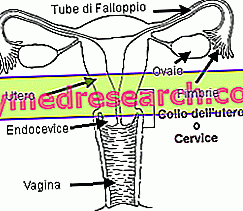
Implanted when the health of one or both knees is severely impaired, modern knee implants are designed to last from 10 to even 20 years .
After this time (or sooner, if complications have arisen or if the prosthetic implant has not been treated), they must be replaced with similar elements.
The surgery to replace a deteriorated and / or malfunctioning knee prosthesis is called revision .Compared to the first prosthesis and the procedure for its implantation, what is in fact a second prosthesis is much more delicate and the intervention with which it is applied is much more complex .
Let's see the reasons together:
- The adhesive used to fix the prosthetic elements and the bone regrowth around these make it very difficult to remove the old prostheses.
Often, surgeons must remove discrete portions of the femur and tibia, ie the bones on which the prosthetic elements are applied, to obtain a satisfactory and profitable result in replacement.
- In many cases, it is necessary to perform bone transplants, that is to take bony portions from another point of the body and apply them where the prosthesis will be implanted. This is due to the fact that the femur and tibia are very deteriorated (even more so if the removal of the old prosthesis was very difficult).
- The risk of onset of operative and post-operative complications is decidedly greater, compared to the first operation.
- Generally, second prostheses last less, because they are more exposed to damage.
- The operation is quite long: it generally lasts 3 hours, that is twice that for the first prosthesis.
NUMBERS AND CAUSES OF THE REVISION
In the United States, it has been calculated that annually about 54, 000 audit operations are performed.Short-term reviews - where for short term we mean a few weeks or few months after the first intervention - take place, for 0.2% of patients, within 90 days and, for 3.7%, within 18 days months .
The causes that most commonly lead to the premature replacement of the first knee prostheses are: infections (generally bacterial) and mechanical alterations of one or more components.
The long-term reviews - where for a long time we intend at least 5 years after the first intervention - take place, for 6% of the patients, after 5 years and, for 12% of the patients, after 10 years .At this juncture, the reasons for the replacement have to do with a more or less normal deterioration of the prosthetic implant.



